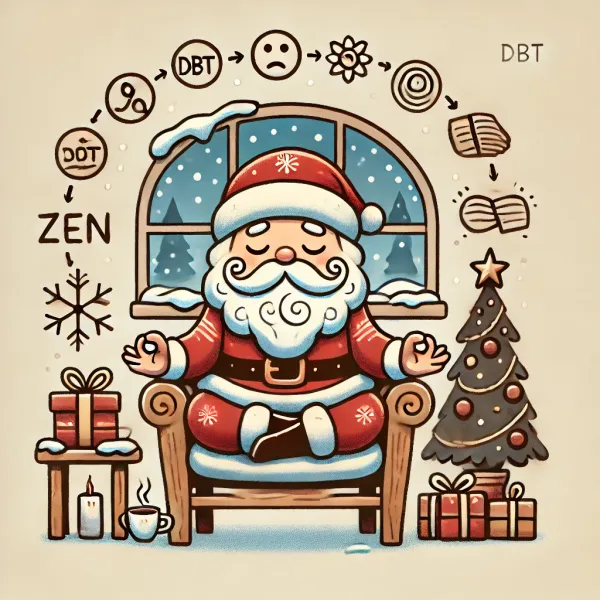Acceptance and Commitment Therapy: My Favorite Choose-Your-Own-Adventure Approach

ACT, short for Acceptance and Commitment Therapy, is the modality I’m most biased toward — in the best way. It’s the approach that helped me personally move past perfectionism that was fueling my anxiety disorder. It’s not based on DSM labels or diagnostic boxes. It’s built on mindfulness and has an almost Eastern quality compared to other therapies I’ve studied and practiced. Alongside IFS, I find it to be one of the least pathologizing ways to work with people.
One of the reasons I love ACT is because the skills are teachable and portable. Once you learn them, they can be applied across so many areas of your life; relationships, work, personal growth, stress. It’s a holistic approach.
Stephen Hayes, the founder, offers big-picture, deeply intellectual perspectives that I enjoy, while Dr. Russ Harris teaches in a style that’s step-by-step, playful, and easy to integrate into sessions. My own way of working with ACT pulls from both the highly scientific theory and the practical steps.
In my practice, most of my clients encounter something called a Choice Point, where we look at what thoughts, feelings, or stories tend to hook them. Then we practice unhooking strategies.
The thing about ACT is that it usually takes me a little longer to get it rolling. First, I have to really understand what’s hooking you, which means spending time learning about your life and your challenges before I start guiding you toward solutions. While I’m doing that, I often weave in DBT skills so you still walk away from early sessions with tools for self-regulation and communication while we’re building the deeper ACT foundation.
One of the fun things about ACT is that it’s highly adaptable. The work can be lighthearted and creative or it can be serious and reflective, depending on what’s needed in the moment. ACT is a bit of a choose-your-own-adventure therapy. Its core model, called the hexaflex, can be bounced around in any order depending on where the session takes us. Whether we’re exploring values, practicing mindfulness, or working through self-defeating stories, the goal is the same: to help you live in a way that feels more like the life you actually want to be living.
A quick glossary you can peek at later
Choice Point: A decision moment where you notice you can either move toward what matters to you or away from it.
Hooked: When a thought, feeling, or memory pulls you into old patterns that don’t serve you.
Unhooking: The skill of stepping back from those thoughts and feelings so they have less power over your actions.
Values: The qualities and directions that make life meaningful for you — your “why.”
Hexaflex: The ACT model showing six interconnected processes that help you build psychological flexibility.




